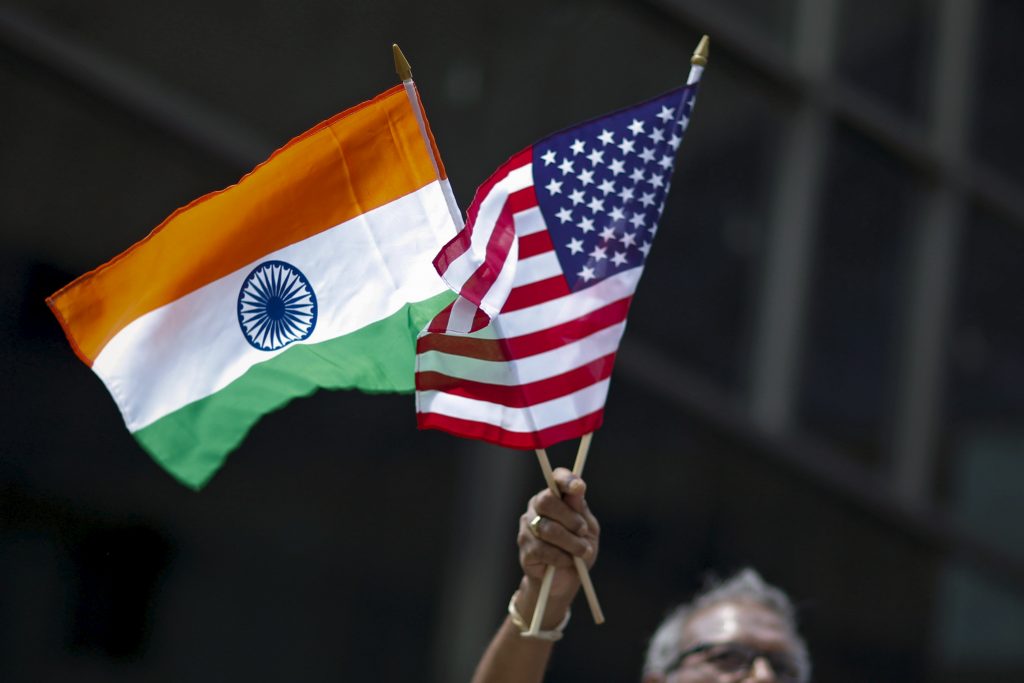As US President Joe Biden reinvigorates his tariff war with India and gets ready for his European trip later this week, the message that is emanating from Washington is that the President wants to reposition his country in the world stage after having busied himself with fixing internal affairs, including the fight against COVID-19.
It is bad news for India that even before the President wrote a post-edit in Washington Post outlining the purpose of the first foreign trip of his presidency, including a meeting with Russian President Vladimir Putin June 16, the US Trade Representative Katherine Tai had announced June 2 the plan for the 25 per cent increase in the tariffs on 26 items from India. Of course, there is the rider that the hikes will be put on hold till December, but this is more to leave some elbow room to India rather than any real concession. For, President Biden seems to be planning to simultaneously take on China, Russia and India.
Significantly, the Russian President Vladimir Putin has already made it clear that no treaty among countries should be directed against any other country. Putin was referring to the Quad grouping of the US, Japan, Australia and India which ostensibly seeks to checkmate China’s ambitions in the South China Sea. That he wants to wean India away from the group and goad it to make peace with China is clear from his apparent praise of Indian Prime Minister Narendra Modi and Chinese President Xi Jinping who, according to him, are both capable of sorting out their areas of differences.
It is precisely this patronising attitude of the Russian President towards India that seems to raise the hackles in the US administration. Maybe because of this that President Biden has written in his article that he wants an alternative force to counter China and Russia. Putin’s bid to nudge India not to play ball with the US as part of the Quad group and instead improve its relations with China probably has made the US watch India’s reaction.
This may explain the hardening of the US stance on a renewed tariff war with India threatening to increase import duties on a range of imports from prawns and Basmati rice to furniture and jewellery in retaliation against New Delhi’s imposition of Digital Services (DS) Tax on tech giants, including Amazon, Google and Facebook. Twitter blocking Donald Trump while he was still POTUS and supporting Biden during the American election in November 2020 is known to all. The recent Indian government effort to scratch Twitter and make it succumb to local political pressure could also be an important secondary story in this scuffle.
Since the European or ASEAN countries are not interested in confronting China in any way, the USA was so happy to get India as a partner country of the Quad. It seemingly secured India’s consent taking advantage of the country’s continuous diplomatic blunders and the Kashmir tangle. Though the US Trade Representative made the announcement on the tariff war June 2, it was widely reported only after Putin’s briefing of international media, including from India, patting both Modi and Xi and encouraging them to iron out their border differences.
On the other hand, the series of European summits that President Biden will hold later this week will signal the reversal of many a crucial policy of his immediate predecessor that antagonised some major allies of the USA.
President Biden is slated to first attend the meeting of the Group of Seven (G-7) nations in Britain. Then he will head to a NATO summit in Brussels where the majority of the European Union leaders will take a relook of the Trump administration’s decision to dissociate the US from the NATO. The main purpose of Biden’s trip seems to be to check the US’ democratic allies whether they and the liberal order they claim to uphold can prove their capacity against modern-day threats and adversaries, including China and Russia and also assess whether they will be able to face the illiberal, nationalist forces gaining ground in many Western societies.
Biden wrote that the US is “back in the chair on the issue of climate change” and will deepen transatlantic cooperation on driving a global clean-energy transition. He hailed the weekend’s agreement between G-7 finance ministers over setting a minimum global corporate tax rate.
It is not yet clear whether many in Europe will fully buy the American view. But, Biden’s European counterparts have reasons to be relieved by the drastic change of tone between his administration and that of Trump, who cast long-standing allies as national security threats, questioned the merits of NATO, dismissed the science behind global warming and encouraged autocrats such as Putin.
